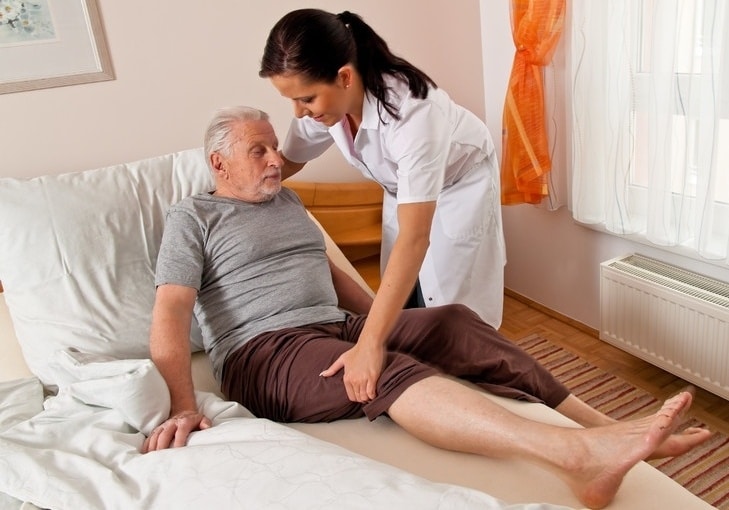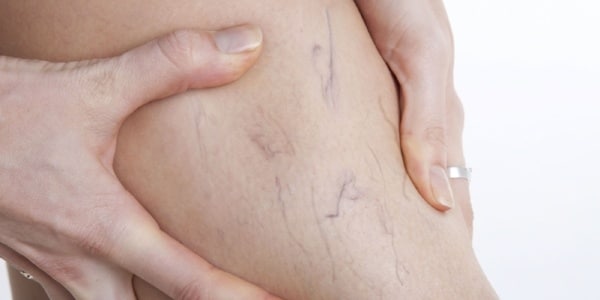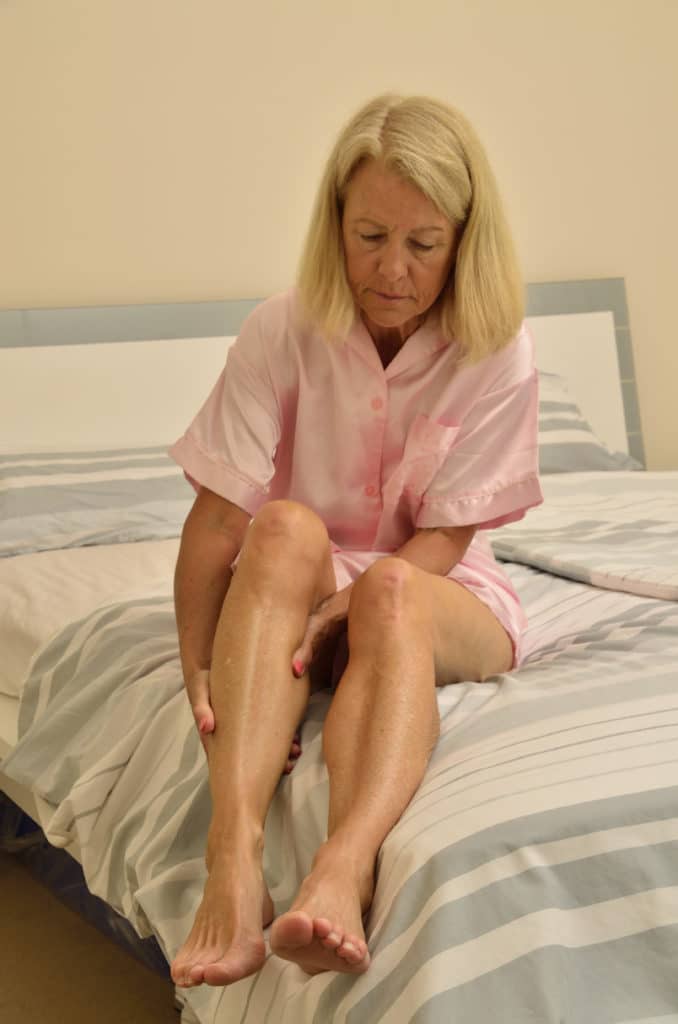Care for Nurses with Chronic Venous Insufficiency

It can hurt to care--just ask any nurse.
As a profession, nurses experience some of the highest rates of varicose veins and Chronic Venous Insufficiency (CVI) in the country. In fact, in one study by the NIH, 63 per cent of participating nurses were shown to have at least one sign of CVI.
Nurses will know that it is important to diligently practice self-care in order to minimize the discomfort of this condition. Elevating the legs, compression stockings, and engaging in calf muscle-contracting exercises such as walking are just some of the home care remedies that can provide occasional relief. As a chronic and progressive condition, the pain, fatigue and other symptoms caused by CVI are likely to worsen.
Fortunately, there are other minimally invasive treatment options that can bring relief from the pain of CVI and varicose veins. If you live and work with any of these symptoms , consider consulting a qualified vein specialist soon to ensure your vascular health is not at risk, and to learn about a treatment plan that is tailored for you.
In the meantime, compression stockings helps if you stand or sit for long periods of time. However, be careful with calf sleeves as they can sometimes cause swelling in the feet because they typically end at the ankle.
CVI risk factors for nurses
There are a number of reasons why nurses are at particular risk for development and progression of CVI. The first reason is their job requires that they stand for long periods; basically, gravity takes its toll. Activities that require standing (or even sitting) for extended periods deprive the body of the benefits of the strong calf muscle contractions produced while walking. This means the heart has to work a lot harder to push the blood through the legs and back up for reoxygenation and recirculation. Over time, the vascular system wearies and becomes less efficient.
The physical strain of the occupation is another notable contributor to the development of CVI. Nurses work long hours, carry out very physical labor, and often perform shift work. This can affect sleep and eating schedules, and these factors can have a negative effect on health, generally, leading to conditions such as insomnia and overweight.
Another factor is gender. Women dominate nursing, and estrogen, oral contraceptives and hormone replacements are known to contribute to the weakening of blood vessel walls. This stretch in blood vessels means more bulging and less efficient return of blood.
Help for nurses with CVI
The good news is that there are qualified vein specialists who care about the wellbeing of nurses. Jilanne Rose is one such specialist. As a board certified doctorate nurse practitioner, she understands the special needs of nurses. Trained by three top Arizona vein specialists-an interventional cardiologist, a cardiothoracic surgeon, and an interventional radiologist-she has completed over 10,000 peripheral vein procedures, and is known for her compassionate care and exceptional outcomes.
If you are experiencing any of the symptoms of CVI, consider consulting with Jilanne today to find out how she can have you back on your feet and doing the work you love, more comfortably, in remarkably little time.
You were concerned that your varicose veins might be a symptom of chronic venous insufficiency or other blood circulation problems beneath the surface, so you consulted your qualified vein specialist. Together, you decided on your best varicose vein treatment, and you are committed to doing all that has been prescribed for your aftercare. What you…
Read MoreHere is the thing: you could have varicose veins and not even realize it. While we associate the term varicose veins with the really obvious blue and twisty bulges that make our legs look like road maps, this is not always the case. Varicose veins occur when the valves in the veins—designed to prevent the…
Read MoreUsted podría estar pensando que sus varices son sólo un problema cosmético, pero podrían ser una señal de que su salud vascular está comprometido. Si ese es el caso, y si usted está sufriendo de insuficiencia venosa (CVI), es casi seguro que su proveedor de beneficios de salud cubrirá la mayoría si no todos los…
Read MoreYou might be thinking that your varicose veins are just a cosmetic issue, but they could be a sign that your vascular health is compromised. If that is the case, and if you are suffering from venous insufficiency (CVI), it is almost certain that your health benefits provider will cover most if not all of the…
Read MoreDoes massage help varicose veins? You might be thinking that massage is a great way to deal with the ache and pain of varicose veins. It seems like it would make sense. Massage therapy is great for improving muscle tone, blood circulation, general relaxation, and overall tissue health. All of these things are important for…
Read MoreThere are a lot of myths and misconceptions when it comes to spider veins. So we asked Jilanne Rose, DPN, ANP-C, a top Metro Phoenix Vein Specialist, to dispel some of the more frequent misconceptions surrounding the cause, risk factors, and treatment of this common vein condition. Myth #1: Spider Veins are Only Cosmetic Many people…
Read MoreJilanne Rose, ANP-C, and Clinical Director at the Advanced Vein Institute of Arizona has been asked to speak at the “Your Health Matters” Seminar on Thursday, January 26th at 10am. The seminar is being hosted by Generations Senior Living in Gilbert Arizona.
Read MoreIf you think that your varicose veins hurt more at night, you are probably not imagining this. The reason why, in a word, is contrast. This might make more sense once it is explained… Especially since the advent of electrical lights, it can be easy to forget that nighttime is for rest. As daylight…
Read MoreAs a smart consumer and advocate for your own health, you have likely done your research about the variety of varicose vein treatments available, and you have probably noticed that vein procedure success rates are hard to find. Some try. There are statistics tucked into difficult-to-read research abstracts and surveys. Some reports contradict others. Others…
Read MoreIf you worry that getting a second opinion on your varicose vein treatment is rude or disrespectful—don’t! Any reputable health professional will tell you that consulting with more than one health specialist is a smart thing to do. Here are a few reasons why that is… Ensuring a proper diagnosis will reduce anxiety…
Read More


